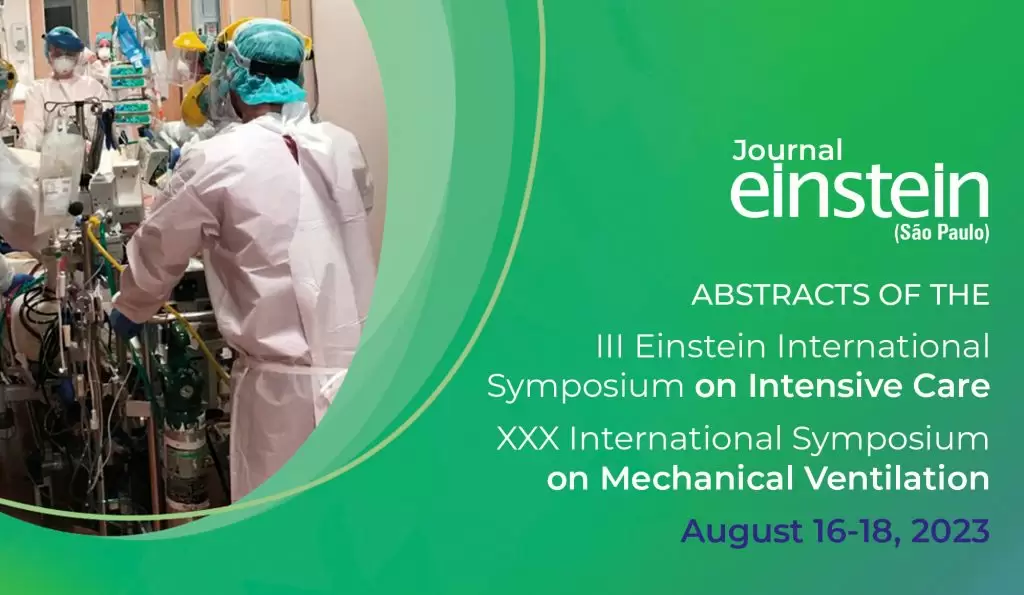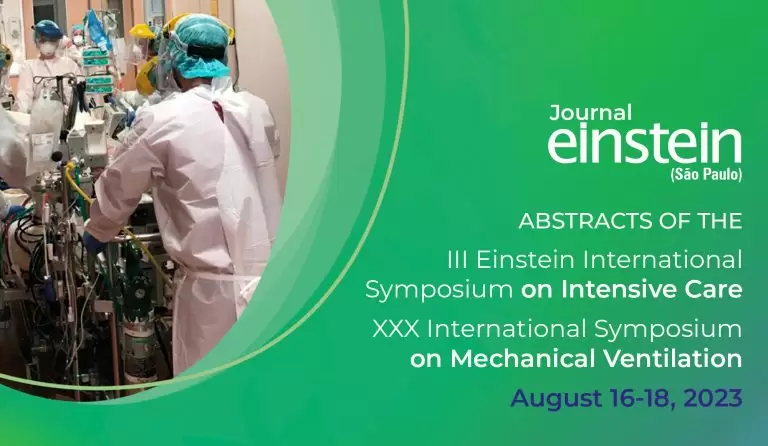einstein (São Paulo). 15/ago/2023;21(Suppl 1):EISIC_MV0021.
Management of nursing knowledge in safe handling of critically ill patients on mechanical ventilation
DOI: 10.31744/einstein_journal/2023ABS_EISIC_MV0021
III Einstein International Symposium on Intensive Care and the XXX International Symposium on Mechanical Ventilation. Aug 16-18, 2023.
Category: Safety / Quality / Management
Introduction:
Mechanical Ventilation (MV) is a fundamental clinical support for maintaining life in severe clinical conditions of respiratory failure.() Therefore, the management of critical patients on MV by the nurse, a member of the multidisciplinary team, is extremely important for achieving the therapeutic goal in the prevention of adverse and infectious events, especially when guided by up-to-date technical-scientific knowledge, resulting in care management based on the best care practices. (–) In addition, the bedside clinical discussion between professionals and residents allows the enhancement of clinical practice and the operationalization of interdisciplinarity.(–)
Objective:
To map nurses’ knowledge in the management of patients with acute respiratory failure on mechanical ventilation.
Methods:
This is a cross-sectional, descriptive study of quantitative approach, developed in the intensive care units of a public university hospital in Rio de Janeiro, through a structured questionnaire, with the Management System Epimed Monitor UTI. Data analysis was performed using descriptive statistics. The research was approved by the Research Ethics Committee with protocol number 4.221.262.
Results:
Study carried out in three intensive care units totaling 27 beds, 42.23% of patients mechanically ventilated, mean duration of MV of 12.24 days, SAPS 3 (62 points), and standardized mortality rate of 1.69 of patients, with very high severity. A total of 47 nurses participated in the study, including 7 second-year residents. There was a greater distribution of nurses (76.6%), with professional practice time in the ICU between 2 and 5 years (53.4%), and 70% having completed the mechanical ventilation course. Regarding device assembly and checking and provision of suitable materials for installation, 76.6% answered correctly, emphasizing the importance of checking device and basic ventilation equipment functioning to ensure protective ventilation. Concerning the measures to prevent MV-associated pneumonia, 93% answered the items correctly; however, as for the periodicity of hygiene, 66.7% of the professionals answered inadequately, demonstrating that there are still gaps related to the performance of oral hygiene and the occurrence of infection. With respect to identifying asynchronies and the need for lower airway aspiration based on the ventilatory variables, 60% of the nurses answered adequately. It should be noted that the study site is a university hospital, with one of the largest residency programs in nursing and physiotherapy in the national scenario, stimulating the exchange of theoretical and practical knowledge among the teams.
Conclusion:
The findings of this study suggest strengthening of the nursing teams’ knowledge about ventilatory management of critical patients and the importance of promoting clinical discussions at the bedside, resulting in the consolidation of knowledge management for multidisciplinary teams.
152



